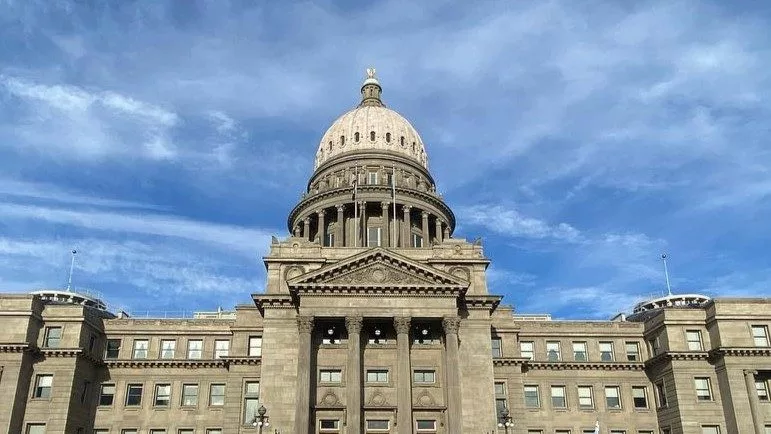SPOKANE, WA – The city of Spokane swung further left in the Nov. 4 election, with progressives sweeping three City Council races.
This gives progressives a 6-1 advantage on the council, whose seats are officially non-partisan. It will also further cement Spokane’s status as an oasis of blue in eastern Washington, a region where the vast majority of elected officials are conservatives. The city is Washington’s second largest, with about 230,000 residents.
“After the longest week of our lives, today’s count confirmed that we won!” progressive Sarah Dixit, who trailed on election night, wrote on Instagram this week. “I am honored to be your next council member.”
Dixit, on Monday, finally edged out incumbent Jonathan Bingle, who was aligned with the business community. Dixit won by the slimmest of margins, barely surpassing the need for a mandatory recount.
A pro-choice advocate, Dixit attributed her victory to “divisions happening because of the Trump administration.”
Bingle said he would not challenge the results.
“Life goes on,” he told reporters.
In the other two Spokane City Council races, incumbent Zack Zappone and newcomer Kate Telis won by much larger margins. In a race for an open seat, voters chose Telis over businessman Alejandro Barrientos, who focused on the issues of downtown crime and homelessness.
The city already has a Democratic mayor in Lisa Brown, the former state Senate majority leader.
Dealing with homelessness in the downtown core has consumed Spokane politics for several years, and Brown believes a big reason she beat incumbent Mayor Nadine Woodward in late 2023 was by focusing on other issues.
While acknowledging that homelessness remains a problem, “I want to highlight that all neighborhoods matter,” Brown said.
Cornell Clayton, director of the Thomas S. Foley Institute at Washington State University in Pullman, pointed to two major causes for the progressive sweep of the City Council races.
One is that Democrats are outraged by the actions of Trump and motivated to vote. The other is a nationwide sorting that sees many urban areas turning bluer while rural areas become more conservative.
“The GOP base is somewhat disappointed in Trump,” Clayton said. “The Democrat base is being energized.
“It’s more of a turnout issue,” Clayton said, as opposed to people changing their individual political stripes.
Clayton said Trump’s actions have provoked “existential angst” among Democrats.
At the same time, there is a growing “degree divide” in the country, with more Democrats having college degrees and moving to larger cities in pursuit of better-paying jobs, Clayton said.
“You see this everywhere,” Clayton said. “Even in red states, the urban centers have gone blue.”
Voters also favored more liberal candidates in key local races in Seattle this year, including the election of Katie Wilson, a self-described socialist, as mayor over incumbent Bruce Harrell.
Spokane County, which has about 556,000 residents, contains this urban-rural divide within its own borders. In offices that represent both urban and rural areas, three of the five county commissioners are Republicans, as are six of the nine state legislators.
Shasti Conrad, chair of the state Democratic Party, said numerous other cities in Washington elected progressive candidates, including Longview, Sunnyside and Camas.
“People don’t want the chaos of the Trump administration,” Conrad said.
In Spokane, Dixit beat incumbent Bingle by just 156 votes, with 50.6% of the vote. A recount would occur if the margin shrank to less than a half percentage point.
Dixit, former organizing director for Pro-Choice Washington, called her victory “surreal.” It was the first run for public office for the 2018 graduate of Spokane’s Whitworth University.
“I think it’s really emblematic of how people are responding to what’s happening federally,” Dixit said. “We’re seeing people’s basic rights taken away, healthcare taken away, insurance premiums going up. I think people are doing whatever they can to have local and state governments stand up against the decisions of the Trump administration.”
Dixit’s win left Michael Cathcart as the lone conservative on the seven-member council. Cathcart did not return a message seeking comment.
Bingle said he will keep “lifting up [Cathcart] in my prayers.”
Meanwhile, some people are wondering if Spokane’s leftward shift will undermine the re-election chances of U.S. Rep. Michael Baumgartner, who hails from the city and represents eastern Washington in Congress. Baumgartner easily won his first term in 2024.
“He is out of touch,” said Brown, who ran unsuccessfully for Congress in 2017 and lost to incumbent Republican Cathy McMorris Rodgers.
Clayton said Baumgartner’s prospects for re-election are tied more to short-term factors like the economy and Trump’s popularity.
“If Trump’s popularity continues to wane, and especially if the economy takes a more dramatic turn down next year (as many economists expect), that could have a substantial impact on partisan turnout, with the potential for creating a ‘Blue Wave,’” Clayton wrote in an email. “I think that is the only realistic threat to a Baumgartner re-election.”
The 5th Congressional District, which includes Spokane, has not sent a Democrat to Congress since George Nethercutt defeated House Speaker Tom Foley in a shocking 1994 upset.
Baumgartner defeated Democratic candidate Carmela Conroy last year, winning about 60% of the vote.
This story first appeared on Washington State Standard.





